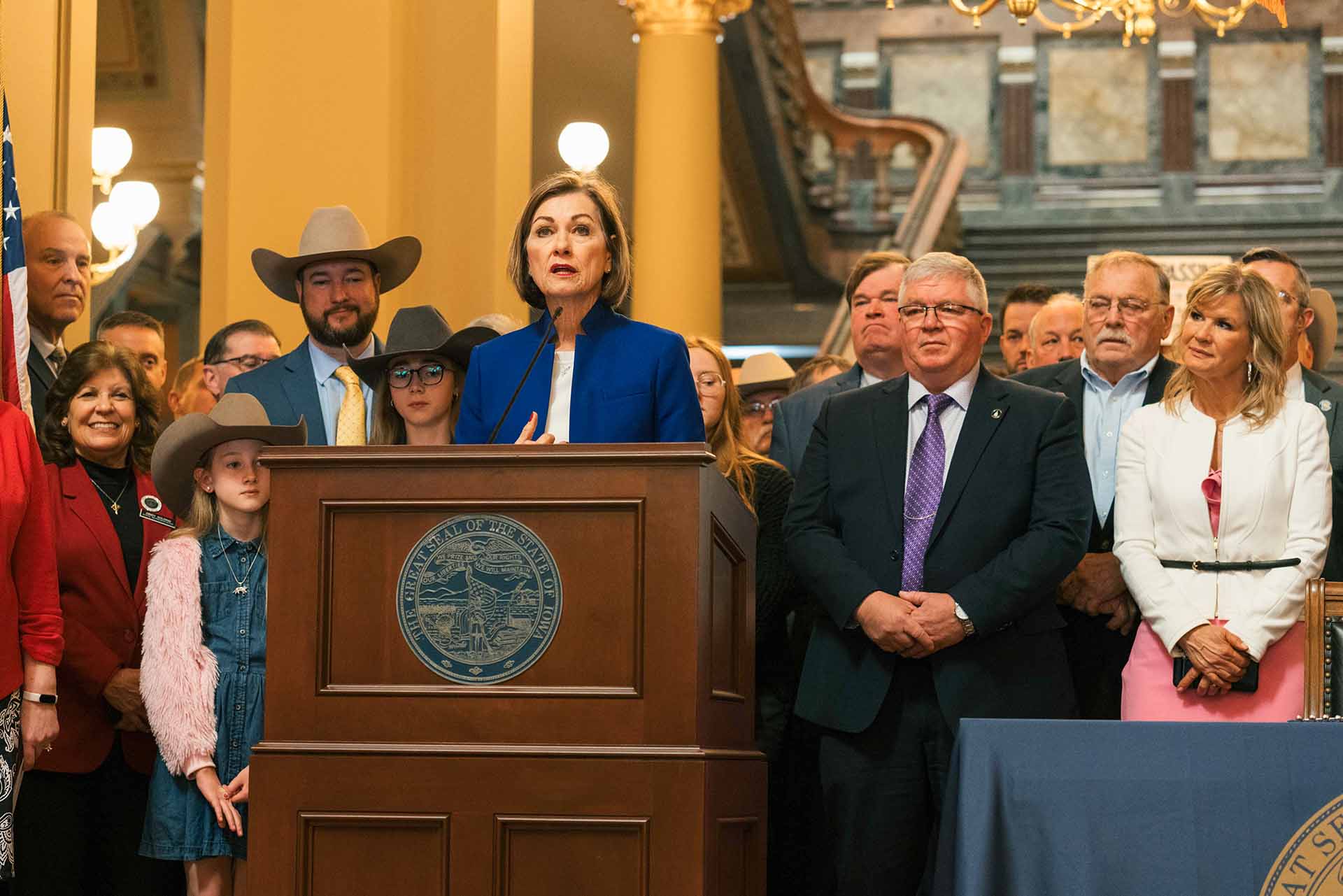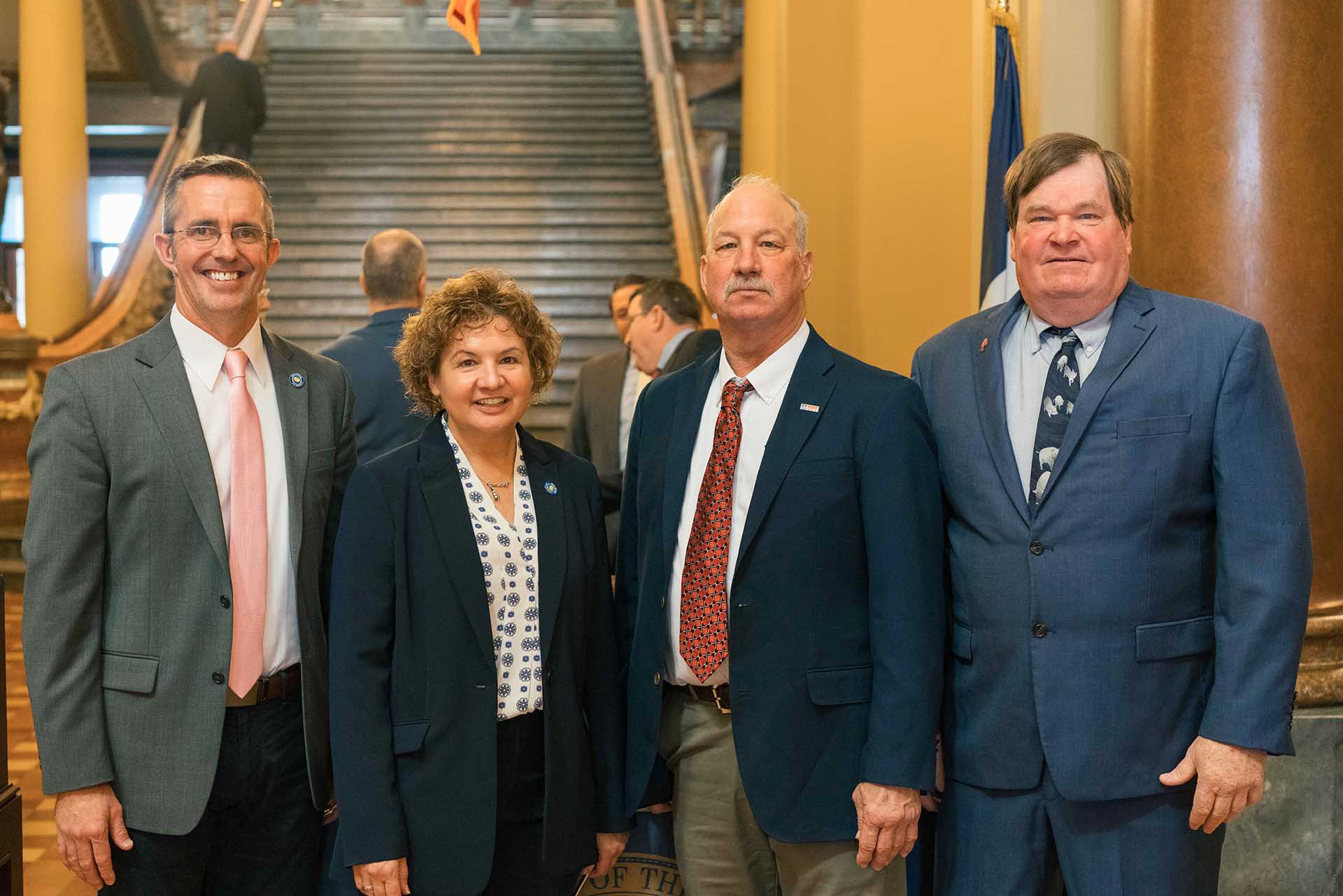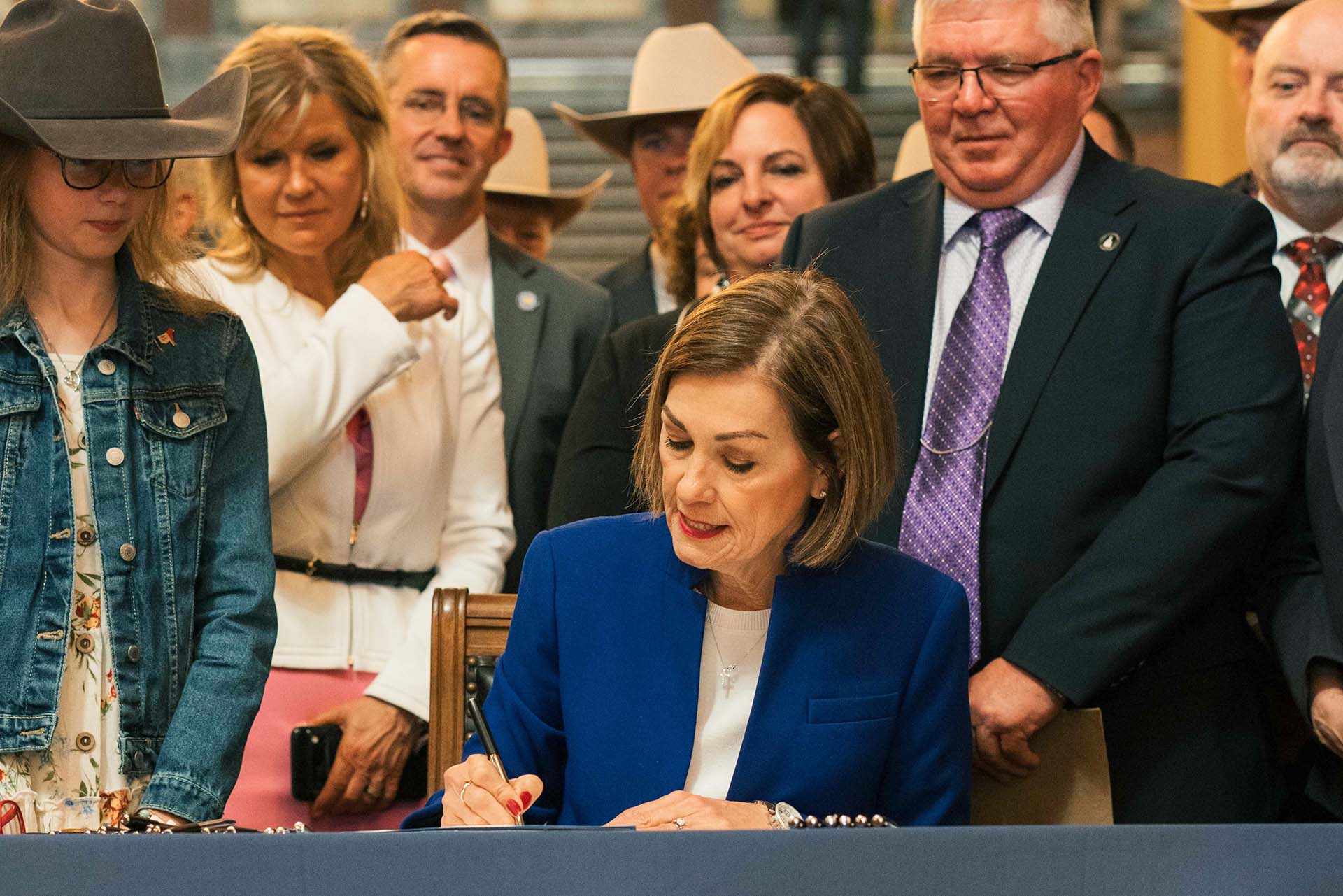
(Photo: Iowa Soybean Association / Joseph Hopper)
Law strengthens foreign land ownership rules
April 10, 2024 | Bethany Baratta
American soil belongs in American hands.
That was the message at the Iowa Capitol this week when Iowa Governor Kim Reynolds signed SF2204 into law. The bill strengthens reporting and ownership requirements on Iowa’s foreign ownership of farmland law, and provides greater enforcement and penalty mechanisms for non-compliance.
Strengthening Iowa’s foreign ownership reporting was a priority heading into the legislative session. Iowa Soybean Association (ISA) President Suzanne Shirbroun tracked the priority from concept to law. Under the 23-karat gold-leafed rotunda at the Iowa State Capitol, Shirbroun watched as Gov. Reynolds signed the bill into law.
“This provides more transparency of land ownership,” says Shirbroun, a sixth-generation farmer and seed business owner from Farmersburg. “I was confident in what we had already, but this gives Iowa Attorney General Bird the authority to investigate when necessary.”

New requirements
Under the law, foreign landowners:
- Must complete a form with their name, birthplace and nationality of those who own and supervise daily operations of the agricultural land, also stating the purpose for conducting their business in Iowa;
- Will be required to report other land in other U.S. states, exceeding 250 acres, to Iowa state leaders;
- Will be fined up to 25% of their property’s assessed value if they fail to register their out-of-state land properly;
- Will be fined $10,000 if they fail to report their land holdings every two years.
Iowa Secretary of State Paul Pate will be tasked with creating an annual report of foreign-owned land in Iowa for officials.
Gov. Reynolds says Iowa’s existing laws on foreign ownership have served as a model to other states. However, she noted adversaries have, “grown significantly more aggressive on the world stage, constantly looking for any opening to assert themselves at the expense of our country. One all-too-common weapon in this battle is the purchase of American farmland.”
The bill passed both the Iowa House and Senate with broad unanimous support.
Iowa’s ability to produce food and fiber makes the state’s treasure—our land—enviable, says ISA President-Elect Brent Swart.

“Food security is national security, and we’re providing food for our nation and the world. At the very high level, this law increases our national security from foreign land ownership,” Swart says, noting that not every foreign landowner has malicious objectives. Investments by foreign firms in research and development on U.S. soil for seed traits, crop protection tools and ag equipment, for example, are ultimately positive for U.S. farmers. Also, some foreign investors purchase ag commodities and provide financial backing for farmer risk management tools.
“It’s about transparency, and knowing who owns the land and their intentions,” he says.
Of the 35.74 million acres of land in Iowa in 2022, nearly 514,000 acres were foreign held, according to the U.S. Department of Agriculture (USDA) Foreign Holding of U.S. Agricultural Land report. That was up 6,463 acres from the year prior, according to the report. Canada owns nearly 198,700 acres of land in Iowa, followed by 104,385 acres owned by Italy. Chinese investors own 265 acres of cropland in Boone County (Syngenta).. Footnotes to the report note that less than 1% of foreign-held ag land acres in the U.S. are filed as Chinese-owned. USDA says multi-country complex organizational structures, or filings that are owned by several countries, including China, are categorized under a “no predominant country” category. “In such cases, China’s interest would be under-represented,” the report’s authors say.
“We have a gift here that nobody does in the world, so we have to take care of it and protect it,” Shirbroun says. “Whether it’s soil conservation or legislation, we must protect it.”
“This is another form of conservation,” Swart adds.
The bill signing ceremony will be fresh in Brent Swart’s mind as he heads into the fields around Spencer to plant soybeans and corn in the next few weeks.
“As we get into the fields, my focus gets so narrowed on getting the crop planted. This makes me back up and think more widely about the importance of what we’re doing, the value it brings not only to the state but the national economy,” he says.
Shirbroun’s 400-mile roundtrip journey to the Iowa State Capitol provided plenty of time to contemplate and reflect on the signing.
“It makes you realize that agriculture is global,” she says. “It’s not just what happens in Farmersburg Township or Iowa; everybody’s watching, and everyone wants a piece of it, one way or another.”
Back